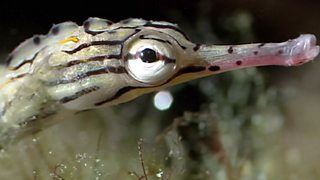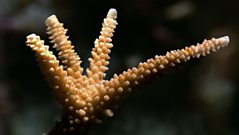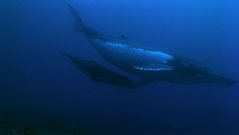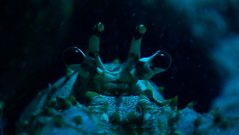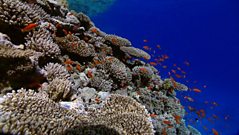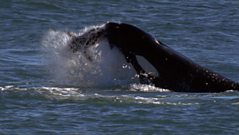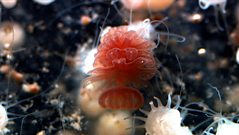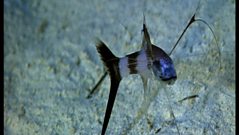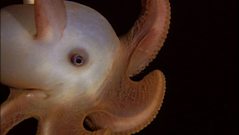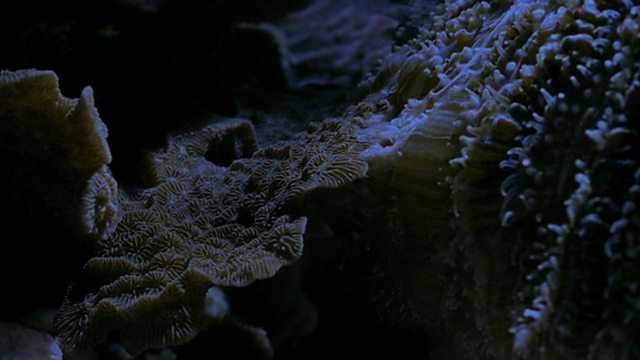
Border dispute
During the day, most corals are withdrawn within their tough exteriors. It's only at night when there are fewer predators on the reef, that the corals spread their tentacles out to feed. Each tentacle has batteries of stinging cells which fire on contact. Once the prey is caught, it's passed down to the polyp's mouth. It's at night when the polyps are extended that the corals add to the limestone foundations beneath them. As they grow larger, the corals begin to overlap and that means trouble. Detecting each other chemically, the dominant coral extrudes its guts on to the neighbouring coral and digests it alive. By the following morning, a pale white band of the limestone skeleton is all that is left of the overnight border dispute.
Duration:
This clip is from
Featured in...
![]()
Βι¶ΉΤΌΕΔ Nature
Be captivated, informed and inspired by the world's wildlife.
![]()
Playing with Time
A collection of clips showing the best in timelapse nature films.
More clips from Coral Seas
-
![]()
Small beginnings
Duration: 01:46
-
![]()
Mating calls
Duration: 01:54
-
![]()
Lobster retreat
Duration: 01:53
-
![]()
Coral anatomy
Duration: 03:15
More clips from The Blue Planet
-
![]()
A Cruel Lesson—Coasts
Duration: 05:03
-
![]()
Small beginnings—Seasonal Seas
Duration: 01:07
-
![]()
Deep seabed—The Deep
Duration: 02:11
-
![]()
Dumbo octopus—The Deep
Duration: 00:50
